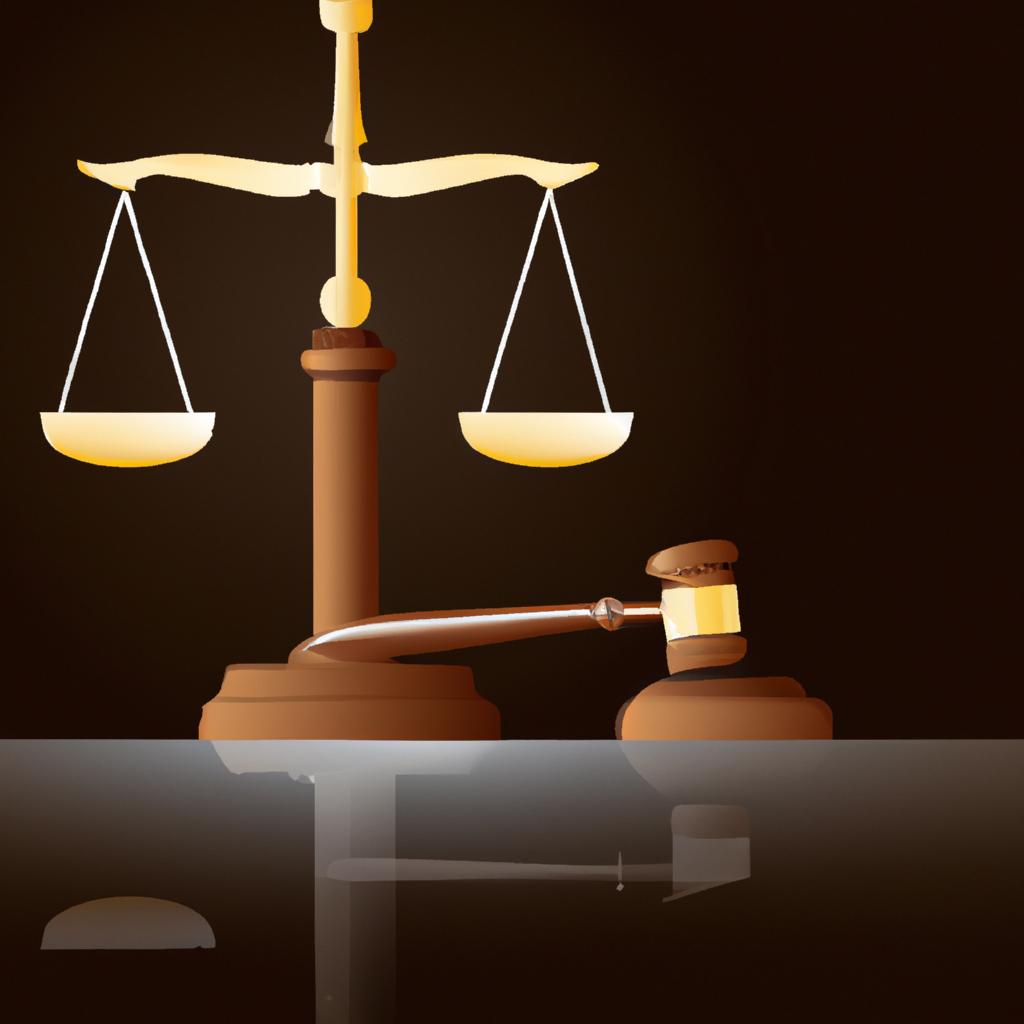In the intricate world of real estate transactions, one of the most crucial documents one must possess is a deed for a house. This seemingly simple piece of paper holds tremendous significance, as it serves as the key to establishing ownership of a property. For those embarking on the journey of acquiring or transferring property, the process of obtaining a deed can often be daunting and complex. Fortunately, with the guidance of experienced professionals, such as the Morgan Legal Group in New York City, navigating the intricacies of obtaining a deed for a house can be a seamless and stress-free experience. Join us as we explore the essential steps and considerations involved in acquiring this fundamental document and unlocking the doors to property ownership.
Locating the Right Authority for Deed Acquisition
When it comes to acquiring a deed for a house, it is essential to locate the right authority to ensure a smooth and legally binding transaction. The deed is a crucial document that establishes ownership of a property, and obtaining it from the proper source is key to avoiding any future complications.
One of the primary sources for acquiring a deed for a house is through the county clerk’s office where the property is located. The county clerk’s office is responsible for recording and maintaining property deeds, making it the official authority for deed acquisition. Additionally, real estate attorneys and title companies can also assist in obtaining a deed, providing legal expertise and guidance throughout the process.

Navigating the Legal Channels of Deed Retrieval
When it comes to deed retrieval, it’s important to know the legal channels you may need to navigate. One common method of obtaining a deed for a house is through the county clerk’s office in the jurisdiction where the property is located. This office typically keeps records of property transactions, including deeds, which can be accessed by the public.
Another option is to hire a title company or real estate attorney to assist with deed retrieval. These professionals have the expertise and resources to search for and obtain the necessary documentation. They can also ensure that the deed is properly recorded and transferred according to state and local laws. If you’re facing challenges in retrieving a deed, seeking legal assistance may be the best course of action to protect your property interests.

Key Considerations When Obtaining a Deed for a Property
When obtaining a deed for a property, there are several key considerations that must be taken into account to ensure a smooth and successful transaction. One of the first steps in acquiring a deed is to determine the type of deed that will be used for the transfer of ownership. Common types of deeds include warranty deeds, quitclaim deeds, and special warranty deeds. Each type of deed has its own implications and it is important to carefully review the terms of the deed before proceeding with the transaction.
Another important consideration when obtaining a deed for a property is to conduct a thorough title search to verify the ownership of the property and uncover any potential liens or encumbrances that may affect the transfer of ownership. Additionally, it is crucial to ensure that the deed is properly executed and recorded with the appropriate government agency to officially transfer ownership of the property. By carefully considering these key factors, you can protect your interests and ensure a successful acquisition of a deed for a property.

Expert Guidance in Securing Your House Deed
When it comes to securing your house deed, it is essential to seek expert guidance to ensure that your property rights are protected. At Morgan Legal Group, our team of experienced attorneys specializes in estate planning and real estate law, providing you with the expertise and knowledge needed to properly navigate the legal process of obtaining a house deed.
With our help, you can rest assured that your house deed will be properly executed and recorded, giving you peace of mind knowing that your property rights are safeguarded. Contact us today to learn more about how we can assist you in securing your house deed and protecting your investment for years to come.
Q&A
Q: Where can I obtain a deed for my house?
A: The most common place to obtain a deed for your house is from the county clerk’s office where the property is located.
Q: Can I request a copy of my deed online?
A: Many county clerk’s offices now offer online access to property records, allowing you to request a copy of your deed from the comfort of your own home.
Q: How much does it typically cost to obtain a copy of a deed?
A: The cost of obtaining a copy of a deed can vary depending on the county, but it is usually a nominal fee.
Q: Can I obtain a deed for a house that I do not own?
A: No, deeds are legal documents that only pertain to the current owner of a property. You would need to contact the current owner or their legal representative to obtain a copy of the deed.
Q: What if I can’t find the deed for my house?
A: If you are unable to locate the deed for your house, you can contact the county clerk’s office for assistance. They may be able to help you locate the deed or provide you with a copy.
Q: Are there any other options for obtaining a deed for a house?
A: In addition to the county clerk’s office, you may also be able to obtain a copy of your deed from a title company or real estate attorney. It is always best to consult with a legal professional for guidance on obtaining important property documents.
In Summary
In conclusion, knowing where to obtain a deed for your house is essential for maintaining proper ownership and legal documentation. Whether you’re a new homeowner or looking to transfer ownership, it’s crucial to have the correct paperwork in hand. By following the steps outlined in this article, you’ll be well on your way to securing your property deed and ensuring a smooth and successful real estate transaction. Remember, a deed is not just a piece of paper – it’s a symbol of your investment and commitment to your home. So, make sure to keep it safe and accessible for years to come. Thank you for reading!
 Where to Get a Deed for a House: A Comprehensive Guide
Where to Get a Deed for a House: A Comprehensive Guide
Buying a house is an exciting milestone, but it also comes with a lot of legal paperwork and documentation. Among these important documents is the title deed, also known as the property deed. A deed is a legal document that proves the ownership of a property. It contains relevant information such as the names of the property owner, a description of the property, and the date the property was transferred. Whether you are buying or selling a house, or simply need a copy of your deed for record-keeping purposes, you might be wondering where and how to obtain a deed for a house. In this article, we will provide a comprehensive guide on where to get a deed for a house and everything you need to know about this important document.
Understanding Deeds and Their Types
As mentioned earlier, a deed is a legal document that shows proof of ownership of a property. It is usually created and signed during real estate transactions, such as buying or selling a house. A deed is also helpful in resolving any disputes that may arise over the ownership of a property. Apart from showing ownership, a deed also includes a legal description of the property. This description typically includes the land’s measurements, location, and any improvements or structures on the property.
There are different types of deeds, each with its specific purpose and implications. The most commonly used deeds include:
- General Warranty Deed: This type of deed offers the highest level of protection to the buyer. It guarantees that the seller has the legal right to sell the property and that there are no hidden claims or restrictions on the title.
- Special Warranty Deed: This type of deed is similar to a general warranty deed, except it only guarantees that the seller has not incurred any title issues during their ownership of the property.
- Quitclaim Deed: This type of deed transfers the seller’s ownership interest to the buyer without any guarantees or promises about the property’s ownership history.
Where to Get a Deed for a House: Options to Consider
- From the Seller or Buyer
The most common way to obtain a deed for a house is through a real estate transaction. In a typical home buying process, the seller’s lawyer or title company prepares the deed, which the buyer’s lawyer then reviews and approves. After closing the sale, the original deed is then recorded with the county or state government office responsible for property records. Once recorded, the deed becomes a public record and can be obtained by anyone upon request, usually for a fee.
- County Recorder’s Office
You can also get a copy of your property deed directly from the county’s recorder or clerk’s office where the property is located. These offices are responsible for recording and maintaining all land records within their jurisdiction. To obtain a copy of your deed, you will need to provide the property’s legal description or the assessor’s parcel number (APN), and pay a copy fee. Some counties even offer online access to their records, making it more convenient to obtain a copy of your deed.
- Title Company
A title company is a third-party entity involved in a real estate transaction that provides insurance against any defects or disputes on the title. They typically conduct a title search to ensure the property’s title is free and clear before issuing title insurance. If you purchased title insurance during your real estate transaction, you can request a copy of your deed from the title company.
- Lawyer or Law Firm
If you are not able to obtain a copy of your deed from the aforementioned options, you can also contact the lawyer or law firm that represented you during your real estate transaction. They should have a copy of the deed in your file or provide you with the necessary guidance on how to obtain a copy.
Why is a Deed Important?
A property deed is an essential document to have as a homeowner. It is proof of your legal ownership of the property and protects your rights to it. A deed also provides a detailed description of the property, which can be helpful in case of any boundary disputes or other legal issues. Moreover, a deed is required for any future sales or refinancing of the property.
Practical Tips for Obtaining a Deed for a House:
- Keep your deed in a safe and accessible location, such as a safe deposit box or a fireproof safe.
- Create a digital copy of your deed and store it in a secure digital storage platform.
- Make sure your deed has the correct names and legal descriptions of the property to avoid any issues in the future.
- Review the deed carefully before signing and consult with a lawyer if you have any doubts or questions.
In Conclusion
Obtaining a deed for a house is a crucial step in any real estate transaction. It proves your legal ownership of the property and protects your rights to it. While the above options are the most common ways to obtain a deed, you can also use a search engine to find other resources or services that can provide a copy of your deed for a fee. It’s essential to keep your deed safe and up-to-date to avoid any complications in the future. We hope this comprehensive guide has provided you with valuable information on where to get a deed for a house and its importance in homeownership.

